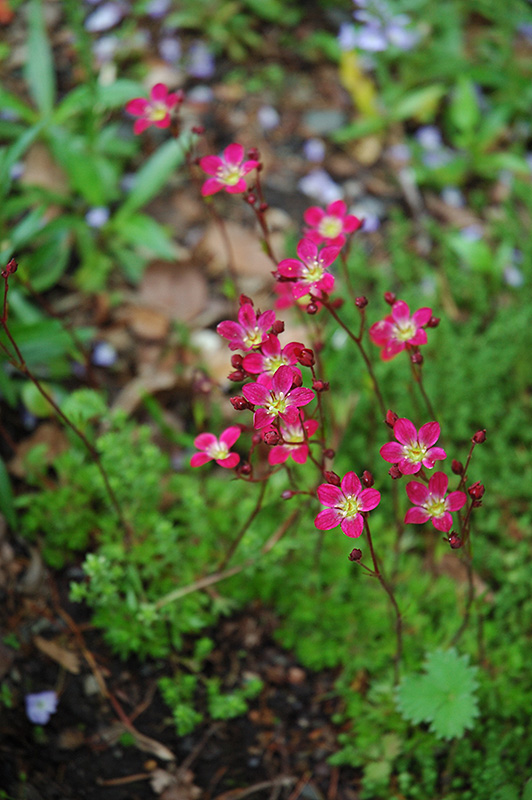Winifred Bevington Saxifrage
Saxifraga x arendsii 'Winifred Bevington'
Height: 6 inches
Spacing: 6 inches
Sunlight:
![]()
![]()
Hardiness Zone: 3a
Other Names: Mossy Saxifrage
Ornamental Features
Winifred Bevington Saxifrage features tiny cherry red star-shaped flowers with buttery yellow eyes and white centers at the ends of the stems from early to late spring. Its needle-like leaves remain emerald green in color throughout the season.
Landscape Attributes
Winifred Bevington Saxifrage is an herbaceous perennial with a ground-hugging habit of growth. It brings an extremely fine and delicate texture to the garden composition and should be used to full effect.
This is a high maintenance plant that will require regular care and upkeep, and should not require much pruning, except when necessary, such as to remove dieback. It has no significant negative characteristics.
Winifred Bevington Saxifrage is recommended for the following landscape applications;
- Rock/Alpine Gardens
Planting & Growing
Winifred Bevington Saxifrage will grow to be only 6 inches tall at maturity, with a spread of 8 inches. When grown in masses or used as a bedding plant, individual plants should be spaced approximately 6 inches apart. It grows at a medium rate, and under ideal conditions can be expected to live for approximately 5 years. As an herbaceous perennial, this plant will usually die back to the crown each winter, and will regrow from the base each spring. Be careful not to disturb the crown in late winter when it may not be readily seen!
This plant does best in full sun to partial shade. It requires an evenly moist well-drained soil for optimal growth, but will die in standing water. It is not particular as to soil pH, but grows best in sandy soils. It is somewhat tolerant of urban pollution. This particular variety is an interspecific hybrid. It can be propagated by division; however, as a cultivated variety, be aware that it may be subject to certain restrictions or prohibitions on propagation.

